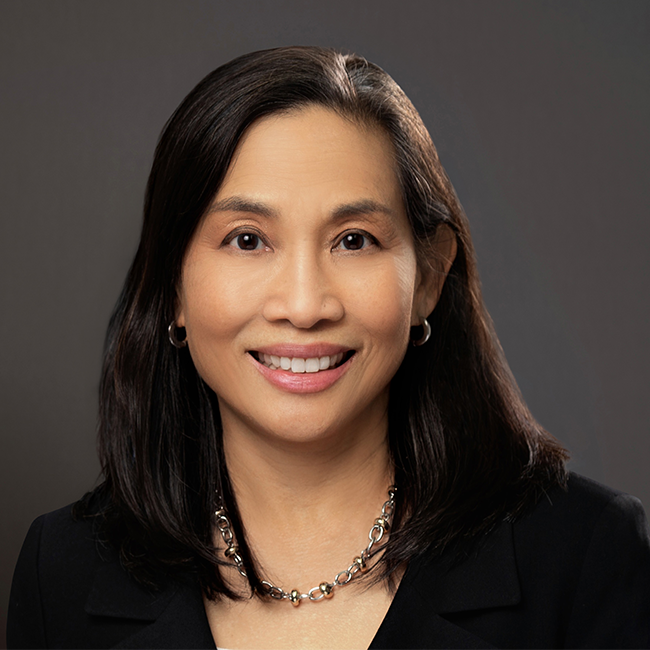

Future of Aging
Longevity Ready: A Systems Approach to Aging Well at Home
Longevity Ready: A Systems Approach to Aging Well at Home
Globally, the number of people aged 60 and older is projected to grow from 900 million today to more than 2 billion by mid-century. With shifts in employment, retirement norms, healthcare delivery, family structures, and other economic and social determinants, the future of aging will be different for individuals, families, businesses, communities, and government agencies. Now is the time for all entities to plan – and act.

Practice Areas
The Future of Aging advances healthy longevity and financial security for all through research, convening, multisector partnerships, and the elevation of high-impact policies and practices.
Brain Health
Financial Longevity
Healthspan
Home and Community
Future of Aging
Most Recent Content

Longevity Ready: A Systems Approach to Aging Well at Home
Longer lives are one of society’s greatest achievements, but they bring new responsibilities to help people prepare for extended lifespans. Longevity Ready: A Systems Approach to Aging Well at Home outlines areas for strategic action to...Read ReportLonger lives are one of society’s greatest achievements, but they bring new responsibilities to help people prepare for extended lifespans.

The Longevity Equation: How Healthspan and Wealthspan Intersect
The Milken Institute’s new, groundbreaking report, The Longevity Equation: How Healthspan and Wealthspan Intersect, explores the deep interconnection between financial well-being and physical health—two critical components of achieving...Read ReportThe Milken Institute’s new, groundbreaking report, The Longevity Equation: Integrating Healthspan and Wealthspan, explores the deep interconnection between financial well-being and physical health—two...
Image
Dawn M. Carpenter, DLS
Director, Financial LongevityDawn M. Carpenter, DLS, is the director of financial longevity at MI Health.
A Midpoint Reckoning: The United States and the UN Decade of Healthy Ageing
As leaders gather in New York for the United Nations (UN) General Assembly this September, the world is also marking the midpoint of the UN’s Decade of Healthy Ageing (2021–2030). The initiative calls on nations to work together to support...Read ArticleImage
Dawn M. Carpenter, DLS
Director, Financial LongevityDawn M. Carpenter, DLS, is the director of financial longevity at MI Health.
Request for Proposals: Kissick Family Foundation Frontotemporal Dementia Grant Program (2025-2026)
The Kissick Family Foundation Frontotemporal Dementia (FTD) Grant Program will fund a third cohort of research studies to understand the fundamental biology of why and how sporadic forms of FTD develop. In partnership with the Milken...Read Article
Family Caregiving: Every Sector, Every Solution
“Even as a health-care professional, I experience how overwhelming the cost of care is each year. No one should have to carry that burden alone.” During a private roundtable at the 2025 Milken Institute Global Conference, Sandra Abrevaya...Read ArticleImage
Priyanka Shah
Associate Director, Future of AgingPriyanka Shah is the associate director of the Milken Institute Future of Aging, which advances healthy longevity and financial security for all through a life-course perspective on aging and longevity.
Mind the Gap: Investing in Dementia as an Opportunity to Extend Healthspan
We are living through an age of remarkable longevity. Globally, the number of people aged 60 and over is projected to double in the next 25 years. But this longevity boom masks a critical problem: the growing gap between lifespan and...Read Report
 CP
CP

Aging Societies—Opportunities amid Challenges? Part 2
The Milken Institute has partnered with the DBS Foundation in authoring a series of three short papers focused on longevity and population aging. This research is coordinated with the DBS Foundation Impact Beyond Award, which will award S$1...Read ReportImage
Quintus Lim
Associate Director, Asia, Milken Institute InternationalQuintus Lim is an associate director of policy and programs for the International pillar at the Milken Institute. He focuses on policy areas such as R&D financing, technological adoption across domains such as health, food, agriculture, finance, and the broader economy, and issues of ecosystem building.Request for Information on Health Technology Ecosystem
Milken Institute Health is honored to provide its expert response to the Request for Information: Health Technology Ecosystem [CMS-0042-NC]. As a nonprofit, nonpartisan think tank, the Milken Institute believes in the power of capital...Read LetterImage
Esther Krofah
Executive Vice President, Milken Institute HealthEsther Krofah is the executive vice president of Milken Institute Health, leading FasterCures, Public Health, the Future of Aging, and Feeding Change. She has extensive experience managing efforts to unite diverse stakeholders to solve critical issues and achieve shared goals that improve patients’ lives.
Models for Financing Affordable and LGBTQ+-Affirming Elder Housing at Scale
The number of Americans aged 65 and older, known as elders or older adults, will increase to 82 million by 2050 (a 47 percent increase from 2022), accounting for nearly a quarter of the US population.1 Many, however, will be financially...Read Report

Media Mentions
Longevity.Technology
Milken Institute calls for greater investment in dementia research and development to help boost global healthspan and longevity.
HR Brew
Leaders from Bank of America, the Milken Institute, and Hanover Insurance, discussed extended leave, flexible workdays, and employee resource groups.
i Advance Senior Care
A new report, “America’s Unseen Workforce: The State of Family Caregiving,” identifies a looming caregiving crisis in the United States.
Worth
The Milken Institute's Diane Ty highlights the widening gap between lifespan and healthspan, the need for policy and innovation to address the caregiving crisis, and the shift in cultural views on aging as a way to tap into the power of intergenerational mentorship.
Leaders
Advisory Board Academic and Policy Council
Advisory Board Leadership Council
Alliance to Improve Dementia Care Steering Committee
Our Team

Mike Brown

Dawn M. Carpenter, DLS

Lauren Dunning, JD

Paul Irving

Shiprah Jamshaid

Esther Krofah

Christopher Multerer

Jennifer Rossano

Priyanka Shah

Diane Ty
Curate your inbox with the latest from the Future of Aging


